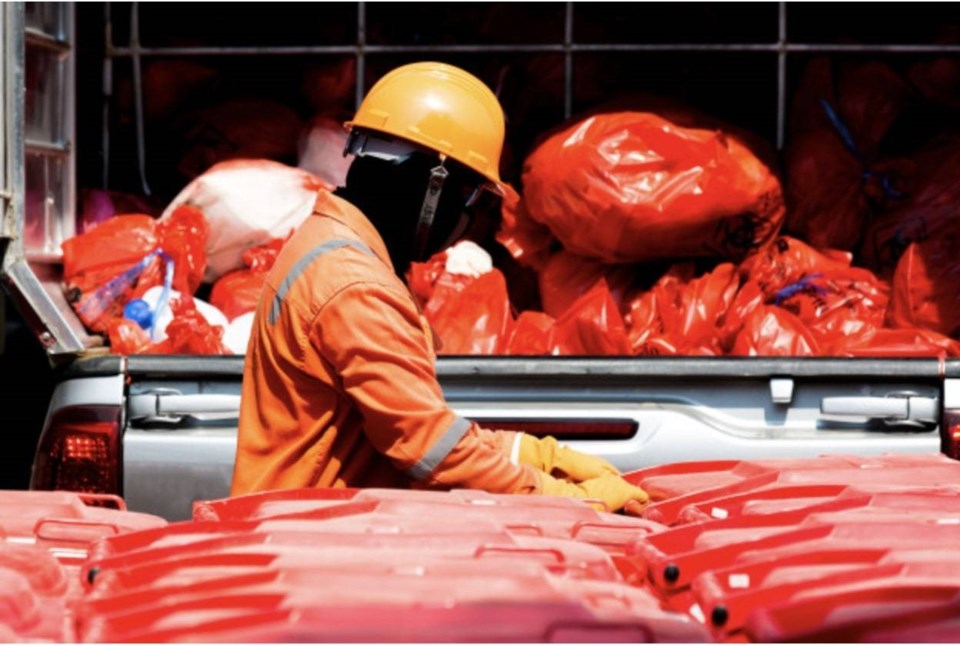Proper medical waste management is necessary for a medical facility. It aims for a sterile and safe environment for doctors and patients. Proper management also ensures that medical substances won't pose a risk to our environment. Many third-party companies provide medical facilities with appropriate waste management, implementing specific protocols to ensure safe disposal of such substances.
Abiding these protocols is crucial as it ensures that the facility maintains a healthy and safe working environment for both its staff and patients. Also, these protocols prevent any danger or risk brought by improper waste management.
Here are some of the risks associated with poor medical waste disposal.
Dangers On Human Health
Improper disposal of medical waste can affect the health of the population living nearby or within the facilities. Here are some health-related dangers that might occur.
- Airborne Pathogens
Neglecting improper medical waste management protocols can cause airborne pathogens to spread into the immediate vicinity. Diseases that disperse through the air are some of the most intrusive types. You may not know that there's susceptibility to the pathogen until symptoms on your body appear. These pathogens can infect the medical facility since the molecules released into the air can lead to further contamination due to the prevailing winds.
- Parasitic Exposure
Medical facilities deal with a lot of testings that may result in parasitic ailments. A reputable medical waste service must contain these parasites without any dangers. Medical staff should discard these tainted items to prevent contamination. Improper waste management can expose workers and patients to any infectious disease.
- Skin Ailments
Exposure to dangerous pathogens can cause some reactions to the skin tissues. Some may even result in severe inflammation and rashes. Hence, medical staff should wear gloves as a defense against skin irritants. They should also practice proper disposal to avoid any unexpected exposure.
- Bacterial Infections
Some pathogens come from ailing patients with infected blood. These particular germs can infect the organs in the body. Proper disposal is necessary to avoid bacterial infections. Medical staff should discard items such as needles in the proper receptacles after use.
Environmental Impacts
Aside from harming medical staff and patients, it can also put risks to the environment. Here are some harmful threats to the surroundings if medical facilities don't follow proper medical waste disposal.
- Soil Contamination
Improper medical waste disposal can cause soil contamination. Some wastes may end up in landfills and excrete hazardous chemicals that leak into the soil. These chemicals can affect plant growth and animals grazing on those plants.
- Air contamination
Hospital wastes contain dangerous microorganisms, which enter and remain in the air. Some of these wastes contain toxic chemicals like acid, oil, and bleach. Hence, the hospital staff should practice proper labeling before discarding these chemicals. Air pollution can also come from burning medical waste. Burning these exposed materials can release hazardous chemicals that could build up in the ozone layer.
- Water contamination
Improper medication disposal can lead to drugs leaching into the water system. These dangerous substances can threaten humans as we use water for household consumption. Toxic liquid chemicals from medical waste can also seep into streams and other bodies of water and affect marine wildlife. It's the reason why we should practice proper medication disposal at all times.
- Extreme Climate Change
Decomposing waste from medical facilities can emit gases that rise to the atmosphere. These wastes can trap heat and result in greenhouse gases, which are the main culprits behind the drastic weather changes. Proper medical waste management is crucial because it can increase greenhouse gases.
Legal Troubles
Improper medical waste disposal can also affect the medical facility itself. Even without any tragedy or accident, medical facilities can face legal troubles when they do not follow the standard disposal regulations. The medical institution is always liable for any incident. Even if they are unaware of any law or guideline, it will not serve as a legitimate alibi.
Any danger associated with improper medical waste management can result in a severe lawsuit. If any staff or patient faces an accident because of improper waste disposal, the facility is held liable. Malpractice insurance does not cover this type of violation and will cost thousands of fees. It can even result in foreclosure and revoking of your facility's license.
Medical facilities and professionals even face more medical liability during the COVID-19 pandemic. The virus can spread when medical staff leaves exposed materials unsupervised. Medical facilities and staff should understand the importance of proper medical waste management. Aside from facing legal lawsuits, medical facilities are also responsible for preventing the further spread of any disease and virus.
Takeaway
Medical wastes are dangerous. If facilities leave these medical wastes unattended, it will affect human life and the environment. It also causes severe legal implications for the facility itself. Medical facilities should adhere to proper waste management protocols and maintain a sterile environment to safeguard everyone.




